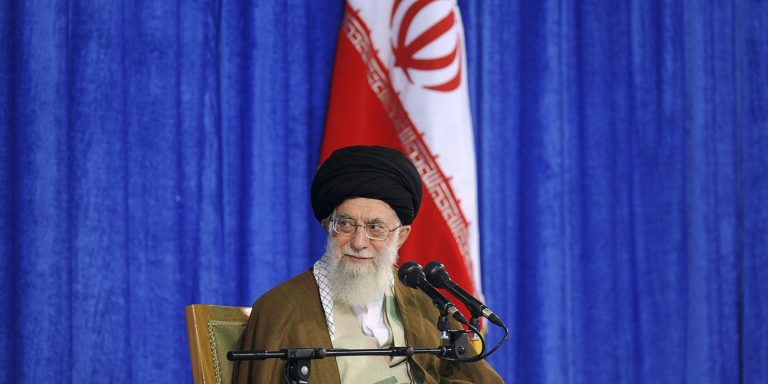INTELBRIEF
June 4, 2018
IntelBrief: Iran Nuclear Deal Fate Uncertain

- The continuation of the landmark 2015 Iran nuclear agreement will depend on whether non-US parties to the accord can assure Tehran that its economy will not suffer from the re-imposition of US secondary sanctions.
- The major European countries differ over how forcefully to try to counteract the Trump Administration’s exit from the deal.
- Iranian leaders seek assurances that European countries will continue to buy Iranian oil and allow Iran access to the hard currency proceeds.
- The other major parties to the deal, Russia and China, as well as major Iranian oil customers India and Turkey, might be key to salvaging the accord.
.
The fate of the 2015 multilateral nuclear agreement with Iran (Joint Comprehensive Plan of Action, JCPOA) hangs in the balance following the Trump Administration’s May 8 withdrawal from the agreement and re-imposition of U.S. secondary sanctions on Iran’s core economic sectors. The European Union (EU) – and in particular the so-called “EU-3” European powers that are party to the deal, Britain, France, and Germany – are leading negotiations with Tehran to try to continue the accord. At a May 25 meeting in Vienna of all remaining parties to the deal (the EU-3, Russia, China, and Iran) Iranian negotiators gave the EU until the end of May to formulate concrete plans for EU countries to continue to buy 500,000 barrels per day of Iranian crude, and pay for it in accessible hard currency. The Iranian ultimatum is part of Tehran’s effort to assess whether Iran will continue to receive the “economic benefits” of the deal despite reimposed U.S. sanctions. Iranian leaders have made clear that if Iran’s economy retreats into severe recession, they will restart the suspended aspects of Iran’s nuclear program.
Efforts by the remaining JCPOA parties to continue the agreement without U.S. participation will require them – and their companies – to risk violating reimposed U.S. secondary sanctions. Fearing loss of access to the massive U.S. economy and financial system, most European major companies that invested in Iran since 2015 – including French energy firm Total, German industrial giant Siemens, European consortium Airbus, and Italy’s Danieli steel conglomerate – have announced that they will exit the Iran market. EU-3 officials, while acknowledging that they cannot direct their companies to stay invested in Iran, are debating a number of options to counter U.S. sanctions. Some European leaders want to aggressively counter the Trump Administration move with such actions as “blocking measures” (negating U.S. penalties on European firms) or launching a complaint against the United States at the World Trade Organization. Other European leaders are focused on working around U.S. sanctions, such as by establishing new financial channels to pay Iran for oil or providing trade credit guarantees or economic aid to Tehran.
Whereas Europe’s response to the U.S. pullout is uncertain, Russia and China, and other major Iran trading partners are unanimous in insisting that they will maintain economic engagement with Iran despite the risk of U.S. sanctions. Iran’s two largest oil customers China and India, which respectively buy 700,000 and 600,000 barrels per day of Iranian crude (together, more than half of Iran’s oil exports), have said that U.N. sanctions no longer apply to Iran and that they will not cut oil buys from Tehran. The President of Turkey, which is another major Iran oil buyer, has taken a similar position, as has Russia, which has significant commerce with Iran. These non-European countries are less dependent on the U.S. market than are the European countries and, in contrast to Europe, their governments do in fact exercise substantial influence over corporate decisions. It is likely that, if the JCPOA is salvaged, it will be the non-European countries that keep Iran’s economy growing while the European countries search for a unified strategy against a U.S. pullout decision that all the European leaders opposed.
.
For tailored research and analysis, please contact: info@thesoufancenter.org
[video width="960" height="540" mp4="https://thesoufancenter.org/wp-content/uploads/2018/06/Final-Edit-1-207.mp4" poster="https://thesoufancenter.org/wp-content/uploads/2018/06/AP_18129352910578.jpg"][/video]